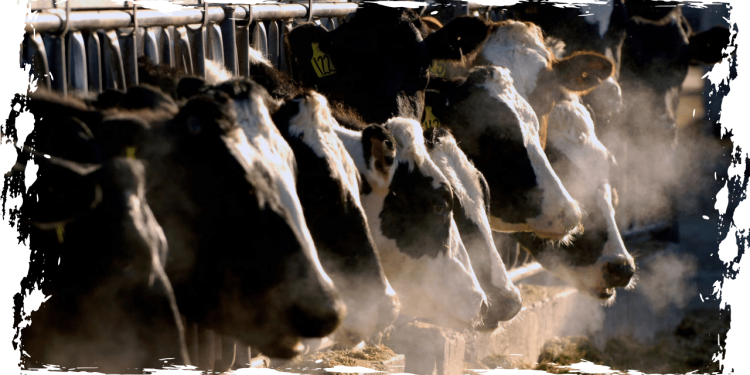The Centers for Disease Control and Prevention (CDC) has acknowledged the potential for a higher risk to human health due to the recent bird flu outbreak among dairy cows and the confirmation of two human cases. In a summary released on Friday, the CDC stated that it is actively preparing for this possibility.
The federal health agency, however, assures that the current risk of bird flu, also known as avian influenza, to people in the U.S. is low. They have found no evidence of person-to-person transmission in the country.
In late March, federal and state public health officials launched an investigation into an illness affecting primarily older dairy cows in Kansas, New Mexico, and Texas. The cows were exhibiting symptoms such as decreased lactation and a decrease in appetite.
Two farm workers, one in Texas and the other in Michigan, have been confirmed as the first cases of bird flu in the United States. The Texas worker and the Michigan worker both had regular contact with birds infected with the virus.
According to the CDC, the two human patients only experienced redness in their eyes as symptoms. Fortunately, both individuals have fully recovered.
According to the CDC, they have been closely monitoring over 350 individuals who have come into contact with dairy cows or consumed unpasteurized cow’s milk as of May 22. The Michigan case was detected through regular monitoring of farm workers. It is worth noting that individuals involved in agriculture, particularly farm workers, are at the greatest risk of contracting bird flu.
According to Dawn O’Connell, assistant secretary for preparedness and response at the Department of Health and Human Services, federal health officials have taken steps to ensure preparedness by filling approximately 4.8 million doses of bird flu vaccine into vials through their national stockpile. This proactive measure is being taken in case there is a need for it in the future.
Dr. John Brownstein, an epidemiologist and chief innovation officer at Boston Children’s Hospital, and an ABC News contributor, commended the government’s preparedness efforts as a proactive approach rather than a reactive one.
The federal government has not shown any reason to worry at this time, and the CDC emphasizes the importance of maintaining a strong flu network during the spring and summer months. This includes increasing the number of specimens for further testing, keeping up with surveillance efforts, and urging clinicians to consider the possibility of bird flu when evaluating patients who have conjunctivitis or respiratory illness after being exposed to agriculture or livestock.
Moreover, health officials have cautioned against the consumption of raw milk for quite some time due to the potential presence of harmful bacteria that can lead to illness. It is worth noting that samples of milk have been discovered with traces of the virus, but testing has confirmed that pasteurization effectively deactivates it. Pasteurization, however, is not a process that raw milk undergoes.










